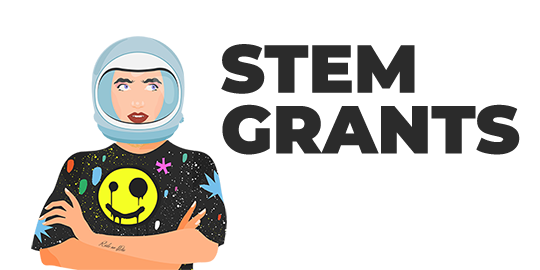Amgen Foundation Science Education Grants – DUE: Open
Change Happens Foundation Grants – DUE: Open
August 29, 2018DiscoverE Collaboration Grants – DUE: Open
August 29, 2018Amgen Foundation Grants and Application
The Amgen Foundation seeks to advance excellence in science education to inspire the next generation of innovators, and invest in strengthening communities where Amgen staff members live and work. The Amgen Foundation carefully considers each grant application it receives, seeking out diverse organizations whose philosophies, objectives and approaches align with the Foundation goals and mission.
The Foundation awards grants to local, regional, and international nonprofit organizations that are replicable, scalable and designed to have a lasting and meaningful effect in our communities. Grants should reflect Amgen’s dedication to impacting lives in inspiring and innovative ways. Amgen Foundation grants range from $10,000 to multi-million dollar commitments.
The Amgen Foundation has established grant-making partnerships with qualified intermediary partners to manage donations to organizations chartered outside of the United States.
Science Education
The Foundation is committed to raising the value of science literacy on a national and local level. The areas given priority consideration within science education are:
- Teacher quality and professional development in math and science: Comprehensive programs that enhance the quality of math and science teachers entering the classroom, and support teachers with meaningful professional-development opportunities that have a positive impact on student achievement
- Pivotal hands-on science experience: Support programs that provide students and teachers with opportunities for hands-on, inquiry-based learning experiences that significantly impact students’ excitement about science and scientific careers
Amgen Foundation Grant Guidelines
The Amgen Foundation, Inc. will consider grant requests from nonprofit organizations that are recognized by the Internal Revenue Service as tax exempt public charities under sections 501(c)(3) and 509(a)(1), (2), (3) of the Internal Revenue Code, located in the United States and Puerto Rico. In addition, the Amgen Foundation will consider requests for funding from governmental organizations located in the United States where the purpose of the grant is to support a charitable, educational, scientific or literary purpose. Thus, eligible grantees may include public elementary and secondary schools, as well as public colleges and universities, public libraries and public hospitals. Successful requests will fall within both the current eligibility guidelines and funding priority areas established by the Amgen Foundation. The Amgen Foundation has established grantmaking partnerships with qualified intermediary partners to manage donations to organizations chartered outside of the U.S.
- Organizations may only submit one request a year for funding.
- The Foundation’s review committees meet quarterly.
- U.S., Puerto Rico, and Europe letters of inquiry must be submitted online by clicking here . Paper forms will not be evaluated.
Please review the Letter of Inquiry Checklist and the Grant Application Checklist to verify the information that you will need to provide as part of your grant proposal.
Eligibility Limitations:
The Amgen Foundation will not consider requests for:
- Support to individuals
- Fundraising or sports-related events
- Corporate sponsorship requests
- Religious organizations unless the gift is designated to a program that is secular in nature and benefits a broad range of the community (e.g. soup kitchens and homeless shelters). Additionally, the program must have a formal mission and separate budget and staff.
- Political organizations or lobbying activity
- Labor unions
- Private foundations
- Organizations not described in sections 501(c)(3) and 509(a)(1), (2), (3) of the Internal Revenue Code
- Organizations that discriminate on the basis of race, color, religion, sex, age, national origin, sexual orientation, gender identity, veteran or disability statuses in the delivery of services and in their employment practices.
